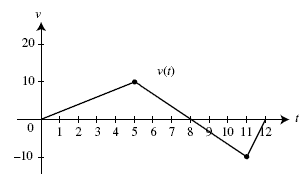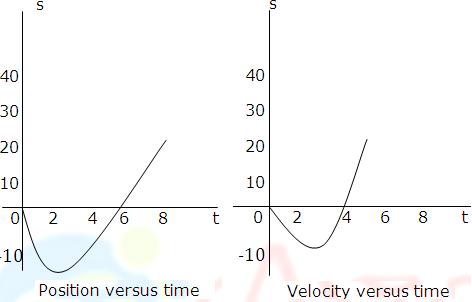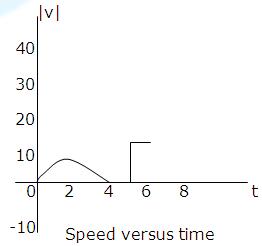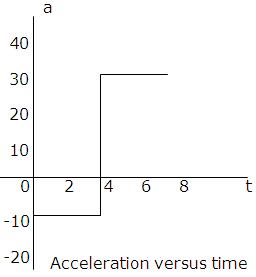English Guide: Practical Tips for Better English Communication
 The last two decades have been hugely transformational as digital technologies have disrupted every walk of life. This will only continue in the new decade, as machine learning, deep learning and artificial intelligence (AI) begin to play an integral part in our workplaces. As a result, workplaces will require very different skillsets than they needed until now. If you are a youngster looking for rapid career development in this new decade, then...
The last two decades have been hugely transformational as digital technologies have disrupted every walk of life. This will only continue in the new decade, as machine learning, deep learning and artificial intelligence (AI) begin to play an integral part in our workplaces. As a result, workplaces will require very different skillsets than they needed until now. If you are a youngster looking for rapid career development in this new decade, then...
 A career in sales can be very exciting and lucrative for people who do well in it. Sales brings in revenues for any organisation, and revenues help companies move forward. As long as one is performing well and continues to bring in sales, one’s job is fairly secure because in times of adversity businesses slash costs, while trying to keep revenues high. Yet, success in a sales career isn’t guaranteed for everyone. It takes certain personality...
A career in sales can be very exciting and lucrative for people who do well in it. Sales brings in revenues for any organisation, and revenues help companies move forward. As long as one is performing well and continues to bring in sales, one’s job is fairly secure because in times of adversity businesses slash costs, while trying to keep revenues high. Yet, success in a sales career isn’t guaranteed for everyone. It takes certain personality...
 In a recent article, we wrote about the difference between improve and improvise and how to use these two similar terms appropriately. Continuing this series on using similar-sounding English words correctly, let us consider the use of the words “affect” and “effect”.
Both terms mean “impact” or “result” of something, but their usage varies depending on the context in which they are being used.
Affect
The word “affect” is generally used in the...
In a recent article, we wrote about the difference between improve and improvise and how to use these two similar terms appropriately. Continuing this series on using similar-sounding English words correctly, let us consider the use of the words “affect” and “effect”.
Both terms mean “impact” or “result” of something, but their usage varies depending on the context in which they are being used.
Affect
The word “affect” is generally used in the...
 English language has plenty of words that seem very similar but mean very different. It is quite easy to ignore the subtle difference in the words themselves and consider them to mean the same thing. This results in incorrect usage of the words when writing or speaking in English, which may confuse the listener or create a negative impression about your English Communication skills. Let’s focus on two words, improve and improvise; the former is a...
English language has plenty of words that seem very similar but mean very different. It is quite easy to ignore the subtle difference in the words themselves and consider them to mean the same thing. This results in incorrect usage of the words when writing or speaking in English, which may confuse the listener or create a negative impression about your English Communication skills. Let’s focus on two words, improve and improvise; the former is a...
 Someone has rightly said, “In the mundane, nothing is sacred. In sacredness, nothing is mundane.”
Mundane is boring. There comes a time when you feel saturated with the routine tasks you are doing and you feel like doing different and challenging things. Your ardent desire to take up additional work and prove your worth overwhelms you. But this needs to be communicated effectively to your boss. Your boss should be aware that you are geared up...
Someone has rightly said, “In the mundane, nothing is sacred. In sacredness, nothing is mundane.”
Mundane is boring. There comes a time when you feel saturated with the routine tasks you are doing and you feel like doing different and challenging things. Your ardent desire to take up additional work and prove your worth overwhelms you. But this needs to be communicated effectively to your boss. Your boss should be aware that you are geared up...
 Gratitude is of vital importance in human life. We need to thank people who have, directly or indirectly, explicitly or implicitly, made a positive change in our life. ‘Thank You’ is the least that we can say. So never shy away from that.
In professional life too, gratefulness is of utmost importance, especially when someone has helped you climb up the career ladder.
It’s your promotion party and you have to give a thank you speech – this...
Gratitude is of vital importance in human life. We need to thank people who have, directly or indirectly, explicitly or implicitly, made a positive change in our life. ‘Thank You’ is the least that we can say. So never shy away from that.
In professional life too, gratefulness is of utmost importance, especially when someone has helped you climb up the career ladder.
It’s your promotion party and you have to give a thank you speech – this...
 We all have encountered situations wherein there were unavoidable or unforeseen circumstances because of which we had to extend our leave. For example, sickness, family issues, marriage etc. Now here comes the uncomfortable question – how to ask the boss for a leave extension. Quite tricky, huh?
When you are already on leave and then you have to request for extension of leave, it should be done in such a way that it is granted without much...
We all have encountered situations wherein there were unavoidable or unforeseen circumstances because of which we had to extend our leave. For example, sickness, family issues, marriage etc. Now here comes the uncomfortable question – how to ask the boss for a leave extension. Quite tricky, huh?
When you are already on leave and then you have to request for extension of leave, it should be done in such a way that it is granted without much...
 A few months back, a video of a job prospect venting out his frustrations on having to speak in English at job interviews, went viral. The protagonist of the video, a youngster, who could speak English fluently was angry that he was always asked to speak in English, and he let out his frustration with a series of expletives in Hindi. The fact that the video went viral and was shared by a large audience in the country, especially among...
A few months back, a video of a job prospect venting out his frustrations on having to speak in English at job interviews, went viral. The protagonist of the video, a youngster, who could speak English fluently was angry that he was always asked to speak in English, and he let out his frustration with a series of expletives in Hindi. The fact that the video went viral and was shared by a large audience in the country, especially among...
 Man is a social animal. We cannot survive in isolation. Also, we all crave for love and attention, no denying that. We are constantly expanding our social network. Be it personal or professional life, networking is of utmost importance to us: Social networking, for getting love and affection, and professional networking for career enhancement.
In this competitive world, we cannot lounge around waiting for opportunities to knock at our door. We...
Man is a social animal. We cannot survive in isolation. Also, we all crave for love and attention, no denying that. We are constantly expanding our social network. Be it personal or professional life, networking is of utmost importance to us: Social networking, for getting love and affection, and professional networking for career enhancement.
In this competitive world, we cannot lounge around waiting for opportunities to knock at our door. We...
 Someone has rightly said, “Good conversation starts with good listening”. Our teachers have often told us that we wouldn’t learn anything new from talking but we will definitely learn something new from listening. How true!
There’s a lot of buzz about spoken English these days, but people tend to forget that English listening is also an integral and inseparable part of English communication, which cannot be overlooked.No wonder then the...
Someone has rightly said, “Good conversation starts with good listening”. Our teachers have often told us that we wouldn’t learn anything new from talking but we will definitely learn something new from listening. How true!
There’s a lot of buzz about spoken English these days, but people tend to forget that English listening is also an integral and inseparable part of English communication, which cannot be overlooked.No wonder then the...
 India is undergoing a digital revolution. The country has embarked on the ‘Digital India’ movement that has been officially promoted by the Indian government. It is therefore not surprising to see a jump in career opportunities in the field of digital marketing, especially search engine marketing (SEM). This field attracts a lot of freshers and young job aspirants. Having good English skills will enable a person to take advantage of the growing...
India is undergoing a digital revolution. The country has embarked on the ‘Digital India’ movement that has been officially promoted by the Indian government. It is therefore not surprising to see a jump in career opportunities in the field of digital marketing, especially search engine marketing (SEM). This field attracts a lot of freshers and young job aspirants. Having good English skills will enable a person to take advantage of the growing...
 Good manners will open doors that the best education cannot.”
Etiquette is the science of living. It embraces everything.People all over the world are judged, liked, disliked, remembered or looked down with contempt based on their manners. Good manners speak a lot about your personality.
It is imperative that you display your best behaviour when you are in a public place especially when eating out. When you walk into a restaurant you don’t want to...
Good manners will open doors that the best education cannot.”
Etiquette is the science of living. It embraces everything.People all over the world are judged, liked, disliked, remembered or looked down with contempt based on their manners. Good manners speak a lot about your personality.
It is imperative that you display your best behaviour when you are in a public place especially when eating out. When you walk into a restaurant you don’t want to...
 Good teamwork is essential not only for the growth of any organisation but also for the personal growth of individuals in the organisation. An essential component of achieving good team bonding is when team members express positive thoughts about fellow team members to them directly. Sincere compliments and praise go a long way in making a person feel good and feel motivated to perform better for the team and the organisation.
There are a...
Good teamwork is essential not only for the growth of any organisation but also for the personal growth of individuals in the organisation. An essential component of achieving good team bonding is when team members express positive thoughts about fellow team members to them directly. Sincere compliments and praise go a long way in making a person feel good and feel motivated to perform better for the team and the organisation.
There are a...
 At the outset, let us state that we hope you never have to apply for a compassionate leave. However, the reality is that most of us, at some stage of our life, end up having to request for such leaves. This article is written to specifically help you in case of such an eventuality.
Before we get into the mechanics of applying for compassionate leave, let us first understand what is compassionate leave. It is leave granted to an employee upon death...
At the outset, let us state that we hope you never have to apply for a compassionate leave. However, the reality is that most of us, at some stage of our life, end up having to request for such leaves. This article is written to specifically help you in case of such an eventuality.
Before we get into the mechanics of applying for compassionate leave, let us first understand what is compassionate leave. It is leave granted to an employee upon death...

DISTANCE TRAVELLED BY A PARTICLE ALONG A LINE

Introduction
 Here we will discuss about motion of particles along a line. The motion of particles along a line is called rectilinear motion. In general rectilinear motion, a particle can move back and forth along the line (as with a piston moving up and down in a cylinder).However, we will consider the simple case in which the particle moves in just one direction along a line (as the car traveling on a straight road). We will assume the motion along a coordinate line, such as an x-axis or y-axis, and that the particle is moving in the positive direction.
Here we will discuss about motion of particles along a line. The motion of particles along a line is called rectilinear motion. In general rectilinear motion, a particle can move back and forth along the line (as with a piston moving up and down in a cylinder).However, we will consider the simple case in which the particle moves in just one direction along a line (as the car traveling on a straight road). We will assume the motion along a coordinate line, such as an x-axis or y-axis, and that the particle is moving in the positive direction.
For a particle in rectilinear motion along a coordinate axis, the average velocity of the particle during the time interval from t0 to t1 is given by
vave = s1 – s0 = ∆s
________ ___
t1 – t0 ∆t
where s0 and s1are the coordinates of the particle at times t0 and t1 respectively.
Hence the average velocity over a time interval is the displacement during the time interval divided by the length of the time interval. In special case where the average velocity of a particle in rectilinear motion is the same over every time interval, the particle is said to have constant velocity or uniform rectilinear motion.
If s(t) is the position function of a particle moving on a coordinate line, then the instantaneous velocity of the particle at time 't' is defined by
v(t) = s'(t) = ds/dt
Since the instantaneous velocity at a given time is equal to the slope of the position versus time curve at that time, the sign of the velocity tells us which way the particle is moving- a positive velocity means that s is increasing with time, so the particle is moving in the positive direction; a negative velocity means that s is decreasing with time, so the particle is moving in the negative direction.
If s(t) is increasing then s'(t)>0 and if s(t) is decreasing then s'(t)<0.
Speed versus velocity
Speed describes how fast an object is moving without regard to direction, whereas velocity describes how fast it is moving and in what direction. Instantaneous speed of a particle is the absolute value of its instantaneous velocity
Instantaneous speed at time t = |v(t)| = |ds/dt|
Example: Let s(t) = t3 - 6t2 be the position function of a particle moving along an s-axis, where s is in meters and t is in seconds. Find the instantaneous velocity and speed and show the graphs of position, velocity and speed versus time.
Solution: Instantaneous velocity, v(t) = ds/dt
= 3t2 – 12t
Instantaneous speed, |v(t)| = |3t2-12t|
The graphs of position, velocity and speed versus time are shown below. Velocity and speed both have units of m/s, since s is in meters and time in seconds.


Acceleration
In rectilinear motion, the rate at which the velocity of a particle changes with time is called its acceleration.
If s(t) is the position function of a particle moving on a coordinate line, then the instantaneous acceleration of the particle at time t is defined by
a(t) = v'(t) = dv/dt
Or
a(t) = s"(t) = d2s/dt2
Example: Let s(t)=t3-6t2 be the position function of a particle moving along an s-axis, where s is in meters and t is in seconds. Find the instantaneous acceleration a(t) and show the graph of acceleration versus time.
Solution: Given s(t) = t3-6t2
v(t) = ds/dt = 3t2-12t
a(t) = d2s/dt2 = 6t-12
The acceleration versus time curve is a line as shown in the figure and its unit is m/s2, since v is in meters per second and time is in seconds.
Speeding up and slowing down
A particle in rectilinear motion is speeding up when its instantaneous speed is increasing and is slowing down when its instantaneous speed is decreasing. Speeding up is called accelerating and slowing down is called decelerating.
A particle in rectilinear motion is speeding up when its velocity and acceleration have the same sign and slowing down when they have opposite signs.
Analyzing position versus time curve
The position versus time curve contains all of the significant information about the position and velocity of a particle in rectilinear motion:
- If s(t)>0, the particle is on the positive side of the s-axis.
- If s(t)<0, the particle is on the negative side of the s-axis.
- The slope of the curve at any time is equal to the instantaneous velocity at that time.
- Where the curve has positive slope, the velocity is positive and the particle is moving in the positive direction.
- Where the curve has negative slope, the velocity is negative and the particle is moving in the negative direction.
- Where the slope of the curve is zero, the velocity is zero, and the particle is momentarily stopped.
Now try it yourself! Should you still need any help, click here to schedule live online session with e Tutor!
About eAge Tutoring:
eAgeTutor.com is the premium online tutoring provider. Using materials developed by highly qualified educators and leading content developers, a team of top-notch software experts, and a group of passionate educators, eAgeTutor works to ensure the success and satisfaction of all of its students.
Contact us today to learn more about our tutoring programs and discuss how we can help make the dreams of the student in your life come true!




